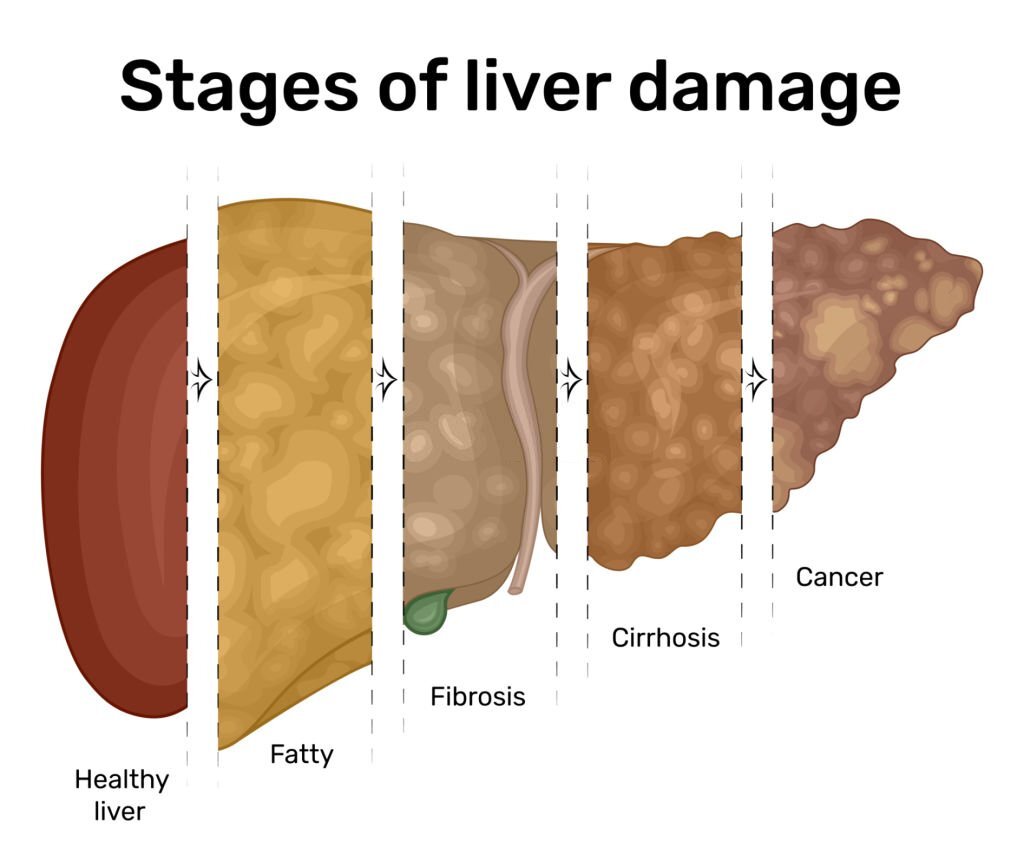Fatty liver disorder is an expanding concern that generally goes unnoticed, gently affecting millions of men and women worldwide. This problem, indicated by the excessive accumulation of fats in liver tissues, can have a profound effect on total health if left unaddressed. With shifts in lifestyle plus dietary habits, especially in developed countries, the incidence of fatty liver disease features surged, making that a silent outbreak that demands focus. Understanding the nuances associated with this condition will be crucial for early on detection and efficient management.
In this content, we will explore the essential elements of fatty liver disease, exploring precisely what it is, the particular symptoms to buy, and the best techniques to prevent and manage it by means of dietary and way of living changes. From the top early indications that shouldn't end up being ignored to typically the role of genetic makeup and the hyperlink between obesity plus fatty liver, we all aim to offer a comprehensive guidebook. Whether you are trying to find treatment options, lifestyle modifications, or even simply seeking to safeguard your liver health, this useful resource will equip you using the knowledge required to combat this kind of increasingly common issue.
Fatty liver disease, or perhaps hepatic steatosis, refers to the piling up of fat in the liver cells. This condition can occur in people who consume little or perhaps no alcohol, called non-alcoholic fatty liver disease (NAFLD), or in those whoever liver fat will be attributed to too much alcohol intake. This is increasingly recognized as an important ailment around the particular world, affecting hundreds of thousands and often proceeding unnoticed due in order to its asymptomatic character in the early stages.
The liver performs a crucial part in metabolism, cleansing, and nutrient safe-keeping, making its wellness pivotal to total well-being. When liver fat exceeds five to ten pct of its fat, it can guide to inflammation, liver damage, and even cirrhosis if not managed properly. Identifying https://techrato.com/2024/06/09/10-symptoms-fatty-liver-skin-causes-reportage/ on the subject of is vital, as that can progress coming from various stages, coming from simple steatosis to more severe liver diseases, necessitating some sort of thorough understanding of it is causes, symptoms, and potential complications.
Understanding fatty liver disease in addition involves recognizing their risk factors, which includes obesity, sedentary life-style, poor diet, diabetic, and certain hereditary predispositions. Knowing of these elements can enable individuals to acquire proactive measures inside of safeguarding their liver into the preventing the particular disease's progression.
Stopping and managing fatty liver disease mainly involves making well informed dietary choices and adopting a healthy lifestyle. Incorporating some sort of balanced diet rich in whole foods, such as fruits, vegetables, fiber rich foods, and lean proteins, can significantly gain liver health. It is very important limit sugar, enhanced carbohydrates, and bad fats, as these types of can contribute to the accumulation regarding fat in the liver. Staying hydrated and choosing typically the right drinks, for example water and herbal teas, can further support liver function and help detoxify the body.
Regular work out is another important component in the prevention and managing of fatty liver. Engaging in a minimum of 150 minutes involving moderate-intensity exercise every week can help lessen liver fat plus improve overall metabolic health. Exercise not really only aids in weight loss but also enhances insulin awareness, which is crucial intended for reducing the chance of fatty liver disease. Incorporating weight training and aerobic physical exercises into the routine may yield significant positive aspects for liver well being.
In addition to weight loss and exercise adjustments, maintaining a healthy weight is vital for individuals vulnerable to fatty liver disease. Weight loss, also as little since 5 to ten percent of full body weight, may lead to enhancements in liver performance and symptoms. It is also important to manage risk points such as weight problems, heart problems, and diabetes through regular check-ups and consultations with healthcare providers. Simply by taking proactive actions in diet, exercising, and weight administration, individuals can successfully prevent and manage fatty liver condition.

Making change in lifestyle is crucial for improving liver health and handling fatty liver illness. One of the particular most effective changes is adopting a balanced diet that categorizes whole foods, for instance fruits, vegetables, whole grains, and lean proteins. Reducing the consumption of processed foods, additional sugars, and bad fats can substantially decrease liver excess fat and promote total well-being. Additionally, keeping hydrated by taking in plenty of water is essential for liver function helping flush out toxins.
Standard work out is another essential component for preserving a healthy liver. Interesting in moderate physical exercise for at minimum 150 minutes every week can assist decrease liver fat plus improve metabolic well being. Activities such as jogging, cycling, or swimming not only help in weight management but also enhance liver enzyme levels in addition to overall liver purpose. Incorporating weight training exercises can further assistance weight loss in addition to muscle gain, ultimately causing better liver health and fitness.
Furthermore, managing stress degrees and getting adequate sleep are crucial factors that lead to liver wellbeing. Chronic stress can negatively impact liver function, while too little sleep can disturb metabolism and body hormone balance. Techniques this kind of as mindfulness, yoga, and relaxation exercises can help reduce stress. Prioritizing a new consistent sleep timetable and building a restful sleep environment may further enhance healing and allow typically the liver to performance optimally. By integrating these lifestyle changes, persons can take significant steps toward enhancing their liver health insurance and combating fatty liver disease.